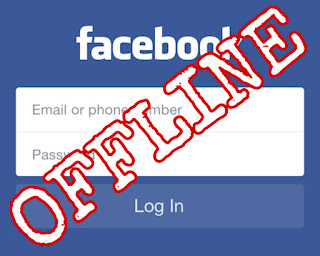Calvinists vs. Free-Will Theists: The Facebook Feud That Shook the Internet
On Tuesday, March 5, 2024, millions of users around the world were unable to access Facebook, Instagram, and Messenger for several hours, due to a technical issue that affected Meta's servers. The outage caused frustration, confusion, and panic among many people who rely on the social media platforms for communication, entertainment, and business. Some even speculated that the outage was a result of a cyberattack, a government conspiracy, or an alien invasion.
However, some Calvinists, who follow the theological tradition of John Calvin, a sixteenth-century Protestant reformer, had a different interpretation of the event. They saw it as a manifestation of God's sovereignty and providence, and a test of their faith and obedience.
According to Calvinism, God is the supreme ruler of the universe, who predestines everything that happens, including the salvation or damnation of human souls. Calvinists believe that God has chosen a select group of people, called the elect, to receive his grace and mercy, while the rest of humanity, called the reprobate, are destined for eternal punishment. Calvinists also affirm the authority and sufficiency of the Bible, the sacraments of baptism and the Lord's Supper, and the importance of a disciplined and moral Christian life.
Some Calvinists viewed the Facebook outage as a sign of God's wrath against the reprobate, who waste their time and energy on vain and worldly pursuits, such as posting selfies, liking memes, and scrolling through news feeds. They argued that God was punishing the wicked for their idolatry, pride, and rebellion, and that the outage was a warning of the impending judgment and hellfire that await them.
Other Calvinists, however, saw the Facebook outage as a sign of God's grace toward the elect, who use the social media platforms for godly and edifying purposes, such as sharing the gospel, encouraging one another, and promoting social justice. They claimed that God was blessing the righteous with a rare opportunity to detach from the distractions and temptations of the online world, and to focus on the things that truly matter, such as prayer, meditation, and fellowship. They also expressed gratitude and joy for the assurance of their salvation and the hope of heaven that they have in Christ.
While the Calvinists were busy debating the theological implications of the Facebook outage, other groups of Christians who hold different views on free will and divine sovereignty also reacted to the event. Arminians, Pelagians, and other libertarian free-will theists objected to their free will being limited by Facebook being shut down. They argued that God gave humans the ability to choose between good and evil, and that this choice is not predetermined by God or affected by the Fall. They claimed that Facebook was a valuable tool for exercising their free will, and that the outage was an infringement on their human dignity and responsibility. They also accused the Calvinists of being fatalists, who passively accept whatever happens as God’s will, without taking any action to change or improve the situation.
The Facebook outage, which lasted for about six hours, was eventually resolved by Meta, who apologized for the inconvenience and attributed the problem to a technical issue. The social media platforms resumed their normal operations, and users were able to reconnect with their friends, family, and followers. However, the Calvinists remained divided on the meaning and significance of the event, and continued to debate whether it was a curse or a blessing from God.

Comments
Post a Comment